Arts & Sciences welcomes the 39 new faculty members who have joined our community in 2025.
Humanities
 Aleisha Barton, Visiting Assistant Professor of History of Art & Architecture, has been appointed the 2025-26 Rayand Margaret Horowitz Visiting Professor in American Art at Boston University. In this role, Barton will teach two arthistory courses related to her area of specialization and participate in Boston University’s broader Americanist community. Barton will also continue to pursue her research on postwar psychedelia in the United States, a topic with strong ties to Boston and its surrounding areas.
Aleisha Barton, Visiting Assistant Professor of History of Art & Architecture, has been appointed the 2025-26 Rayand Margaret Horowitz Visiting Professor in American Art at Boston University. In this role, Barton will teach two arthistory courses related to her area of specialization and participate in Boston University’s broader Americanist community. Barton will also continue to pursue her research on postwar psychedelia in the United States, a topic with strong ties to Boston and its surrounding areas.
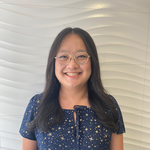 Sophie Hao, Assistant Professor of Linguistics, is a specialist in computational linguistics.Professor Hao does research on issues related to deep neural network models including interpretability, explainability, and bias. You can learn more about her research interests on her website. Sophie Hao has a remarkable educational background, including a joint PhD in Computer Science and Linguistics from Yale (2022), where she was advised by Bob Frank and Dana Angluin — the first joint CS and Linguistics PhD at Yale ever! But this was not *her* first joint degree; she also holds a BA in Mathematics and Linguistics from UChicago. She was most recently a postdoc at NYU, where among other things she collaborated with Tal Linzen on a project showing that statistically trained language models like BERT form representations of morphosyntactic features during training.
Sophie Hao, Assistant Professor of Linguistics, is a specialist in computational linguistics.Professor Hao does research on issues related to deep neural network models including interpretability, explainability, and bias. You can learn more about her research interests on her website. Sophie Hao has a remarkable educational background, including a joint PhD in Computer Science and Linguistics from Yale (2022), where she was advised by Bob Frank and Dana Angluin — the first joint CS and Linguistics PhD at Yale ever! But this was not *her* first joint degree; she also holds a BA in Mathematics and Linguistics from UChicago. She was most recently a postdoc at NYU, where among other things she collaborated with Tal Linzen on a project showing that statistically trained language models like BERT form representations of morphosyntactic features during training.
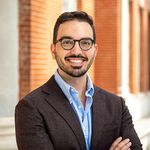 Rafael Hernández, Lecturer of English, considers modernism’s interest in embodiment—notably, how modernism envisioned the body as under regular threat of disease, disability, gender flux, and racial slippage. Throughout his work, Hernández locates the medical and quasi-medical origins undergirding long-form narratives about health and disability in the early twentieth century. Nineteenth century socio-medical discourses rapidly reached a fever pitch of paranoia in the moment of early modernism and newly framed the body as the site of social and moral deviance, from disease and disability to miscegenation and gender play. In his research, he traces this story as rendered in the literature and popular discourse of the time to show how the political, social, and cultural instability of the modernist moment was attached to disruptions in bodies along with their representations in art and literature. Alongside his research, Hernández teach courses in British and Irish modernism, nineteenth- and twentieth-century Anglophone literature, and special topics courses on disability studies and the works of James Joyce.
Rafael Hernández, Lecturer of English, considers modernism’s interest in embodiment—notably, how modernism envisioned the body as under regular threat of disease, disability, gender flux, and racial slippage. Throughout his work, Hernández locates the medical and quasi-medical origins undergirding long-form narratives about health and disability in the early twentieth century. Nineteenth century socio-medical discourses rapidly reached a fever pitch of paranoia in the moment of early modernism and newly framed the body as the site of social and moral deviance, from disease and disability to miscegenation and gender play. In his research, he traces this story as rendered in the literature and popular discourse of the time to show how the political, social, and cultural instability of the modernist moment was attached to disruptions in bodies along with their representations in art and literature. Alongside his research, Hernández teach courses in British and Irish modernism, nineteenth- and twentieth-century Anglophone literature, and special topics courses on disability studies and the works of James Joyce.
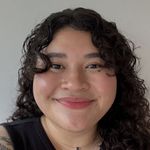 Arianna Q. James, Assistant Professor of English, also has affiliations in the African American & Black Diaspora Studies Program and the Cinema and Media Studies Program in the College of Arts & Sciences. Professor James specializes in African American and Asian American literature and film studies. Her book project, A Sense of AfroAsia: Blackness, Asianness, and the Speculative, collapses the boundaries between African American and Asian American literature and theory to experiment in the expansive field of Afro-Asian studies. Invested in ways of reading and being beyond institutionalized field delineation, A Sense of AfroAsia argues that aesthetic markers of AfroAsia beyond bodily encounters speak to a long tradition of crossing and speculative race-making in the U.S. Outside of her primary fields of study, Arianna’s other research and teaching interests include media and fan work, speculative fiction, and digital humanities, as well as constellating theories around queerness, mixedness, and the body.
Arianna Q. James, Assistant Professor of English, also has affiliations in the African American & Black Diaspora Studies Program and the Cinema and Media Studies Program in the College of Arts & Sciences. Professor James specializes in African American and Asian American literature and film studies. Her book project, A Sense of AfroAsia: Blackness, Asianness, and the Speculative, collapses the boundaries between African American and Asian American literature and theory to experiment in the expansive field of Afro-Asian studies. Invested in ways of reading and being beyond institutionalized field delineation, A Sense of AfroAsia argues that aesthetic markers of AfroAsia beyond bodily encounters speak to a long tradition of crossing and speculative race-making in the U.S. Outside of her primary fields of study, Arianna’s other research and teaching interests include media and fan work, speculative fiction, and digital humanities, as well as constellating theories around queerness, mixedness, and the body.
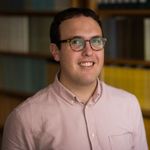 Daniel Munro, Assistant Professor of Philosophy, has main interests in epistemology, philosophy of mind, and philosophy of cognitive science. Much of his research is about the imagination. In addition to foundational questions about the imagination’s nature and epistemic value, he’s interested in how theorizing about the imagination can help us better understand domains such as conspiracy theorizing, religious cognition, and artificial intelligence. Daniel received his PhD from the University of Toronto and his BA from the University of British Columbia. Before coming to BU, he held a postdoctoral fellowship at York University.
Daniel Munro, Assistant Professor of Philosophy, has main interests in epistemology, philosophy of mind, and philosophy of cognitive science. Much of his research is about the imagination. In addition to foundational questions about the imagination’s nature and epistemic value, he’s interested in how theorizing about the imagination can help us better understand domains such as conspiracy theorizing, religious cognition, and artificial intelligence. Daniel received his PhD from the University of Toronto and his BA from the University of British Columbia. Before coming to BU, he held a postdoctoral fellowship at York University.
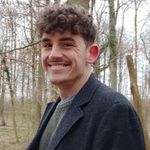 Miguel Ohnesorge, Assistant Professor of Philosophy, is a philosopher and historian of science. You will often find him busy writing his book (under contract at Oxford University Press), which is tentatively titled “Newton’s Open Problem: Earth’s Figure and Universal Gravitation.” In it, he reconstruct how they tested whether Newtonian gravitation is a ‘universal’ force. Ohnesorge’s other research explores the foundations and limits of quantitative measurement in science. You can use this website to discover his research and teaching.
Miguel Ohnesorge, Assistant Professor of Philosophy, is a philosopher and historian of science. You will often find him busy writing his book (under contract at Oxford University Press), which is tentatively titled “Newton’s Open Problem: Earth’s Figure and Universal Gravitation.” In it, he reconstruct how they tested whether Newtonian gravitation is a ‘universal’ force. Ohnesorge’s other research explores the foundations and limits of quantitative measurement in science. You can use this website to discover his research and teaching.
 Steven D. Smith, Professor of Classical Studies, is the William Goodwin Aurelio Professor of Greek Language and Literature at Boston University. He received his PhD from Boston University in 2004 and is thrilled to be back in his home department. Before returning to Boston, Professor Smith spent two decades at Hofstra University, where he held the John Cranford Adams Endowed Chair in the Humanities (2017-2023), and where he was named Teacher of the Year in 2023. He is the author of Greek Identity and the Athenian Past in Chariton (Barkhuis, 2007) and Man and Animal in Severan Rome: The Literary Imagination of Claudius Aelianus (Cambridge, 2014). In 2020, Professor Smith received the Charles J. Goodwin Award of Merit for his book Greek Epigram and Byzantine Culture: Gender, Desire, and Denial in the Age of Justinian (Cambridge, 2019).
Steven D. Smith, Professor of Classical Studies, is the William Goodwin Aurelio Professor of Greek Language and Literature at Boston University. He received his PhD from Boston University in 2004 and is thrilled to be back in his home department. Before returning to Boston, Professor Smith spent two decades at Hofstra University, where he held the John Cranford Adams Endowed Chair in the Humanities (2017-2023), and where he was named Teacher of the Year in 2023. He is the author of Greek Identity and the Athenian Past in Chariton (Barkhuis, 2007) and Man and Animal in Severan Rome: The Literary Imagination of Claudius Aelianus (Cambridge, 2014). In 2020, Professor Smith received the Charles J. Goodwin Award of Merit for his book Greek Epigram and Byzantine Culture: Gender, Desire, and Denial in the Age of Justinian (Cambridge, 2019).
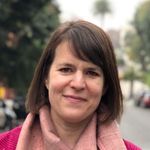 Carolyn White, Professor of History of Art & Architecture, is director of the Preservation Studies Program and Professor of History of Art and Architecture at Boston University. Her scholarship focuses on cultural heritage, the materiality of daily life, the built environment, active site archaeology, and the intersection of and collaboration between art and archaeology. Her research spans four centuries, focusing on personal adornment and the construction of identity in 18th century England and America, 19th-century ranching in Hawaii, daily life in 1860s Aurora, Nevada, and on the built environment of Black Rock City. Her new research project focuses on squatted buildings and the right to the city in Rome, Italy. Her most recent books are The Archaeology of Burning Man (University of New Mexico Press, 2022) and Distant Voices: On Steven Seidenberg’s Architecture of Silence (Contrasto Press, 2024), the latter with her frequent collaborator, photographer Steven Seidenberg.
Carolyn White, Professor of History of Art & Architecture, is director of the Preservation Studies Program and Professor of History of Art and Architecture at Boston University. Her scholarship focuses on cultural heritage, the materiality of daily life, the built environment, active site archaeology, and the intersection of and collaboration between art and archaeology. Her research spans four centuries, focusing on personal adornment and the construction of identity in 18th century England and America, 19th-century ranching in Hawaii, daily life in 1860s Aurora, Nevada, and on the built environment of Black Rock City. Her new research project focuses on squatted buildings and the right to the city in Rome, Italy. Her most recent books are The Archaeology of Burning Man (University of New Mexico Press, 2022) and Distant Voices: On Steven Seidenberg’s Architecture of Silence (Contrasto Press, 2024), the latter with her frequent collaborator, photographer Steven Seidenberg.
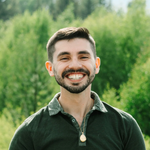 Anthony Yacovone, Assistant Professor of Linguistics uses psycholinguistic methods like neuroimaging, eye-tracking,and computational modeling to better understand how language develops, functions, and adapts in complex, real-world environments.
Anthony Yacovone, Assistant Professor of Linguistics uses psycholinguistic methods like neuroimaging, eye-tracking,and computational modeling to better understand how language develops, functions, and adapts in complex, real-world environments.
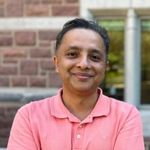 Gaurab Aryal, Associate Professor of Economics, is an empirical industrial organization economist, who uses game theory and econometrics method to study markets and industries, with and without informational frictions. His current research includes designing auctions for annuities and high-speed internet for schools, measuring market values of pharmaceutical drugs, merger analysis and understanding causal link between competition and productivity.
Gaurab Aryal, Associate Professor of Economics, is an empirical industrial organization economist, who uses game theory and econometrics method to study markets and industries, with and without informational frictions. His current research includes designing auctions for annuities and high-speed internet for schools, measuring market values of pharmaceutical drugs, merger analysis and understanding causal link between competition and productivity.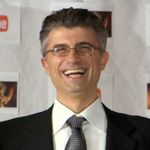 Leonidas Kontothanassis, Professor of the Practice of Computer Science, recently served as Senior Engineering Director at Facebook, preceded by his work at Google and Akamai. Notably, Leonidas was recognized by ACM SIGCOMM as having a significant impact on the world of computer networking, as well as being awarded a technical Emmy for building a system that made video consumption on YouTube possible on a large scale. Through his academic and research experience, Leonidas has some words of wisdom to keep in mind this school year and beyond: “Learning is something you should never stop doing,” he says.
Leonidas Kontothanassis, Professor of the Practice of Computer Science, recently served as Senior Engineering Director at Facebook, preceded by his work at Google and Akamai. Notably, Leonidas was recognized by ACM SIGCOMM as having a significant impact on the world of computer networking, as well as being awarded a technical Emmy for building a system that made video consumption on YouTube possible on a large scale. Through his academic and research experience, Leonidas has some words of wisdom to keep in mind this school year and beyond: “Learning is something you should never stop doing,” he says.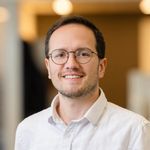 Aaron Mueller, Assistant Professor of Computer Science, is interested in evaluating and improving the robustness and efficiency of language models. His work spans causal and mechanistic interpretability methods; evaluations of language models inspired by linguistic principles and findings in cognitive science; and the development and analysis of more sample-efficient language models.
Aaron Mueller, Assistant Professor of Computer Science, is interested in evaluating and improving the robustness and efficiency of language models. His work spans causal and mechanistic interpretability methods; evaluations of language models inspired by linguistic principles and findings in cognitive science; and the development and analysis of more sample-efficient language models.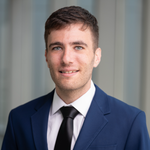 Roi Orzach, Assistant Professor of Economics,is a microeconomic theorist specializing in reputation, repeated games, and social learning. His recent research investigates how the desire to conform results in pluralistic ignorance in groups. He is also researching how groups with diverse interests design collaborative experimentation and the inefficiencies that arise in the process.
Roi Orzach, Assistant Professor of Economics,is a microeconomic theorist specializing in reputation, repeated games, and social learning. His recent research investigates how the desire to conform results in pluralistic ignorance in groups. He is also researching how groups with diverse interests design collaborative experimentation and the inefficiencies that arise in the process.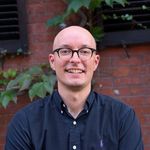 Alexander Poremba, Assistant Professor of Computer Science, shares a joint affiliation with the Faculty of Computing & Data Sciences and the Department of Physics. Previously, he was a postdo
Alexander Poremba, Assistant Professor of Computer Science, shares a joint affiliation with the Faculty of Computing & Data Sciences and the Department of Physics. Previously, he was a postdo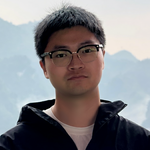 Chang Xiao, Assistant Professor of Computer Science, is a Research Scientist at Adobe Research.Xiao’s research lies at the intersection of Human-Computer Interaction, Generative AI, Visual Computing, and AR/VR. He is particularly interested in developing human-centered interaction techniques that are intuitive, immersive, and natural. His research outcomes have had various impacts beyond academia. At Adobe, he has presented my research twice during Adobe’s annual event, Summit Sneaks (2022, 2024). These features have also been integrated into Adobe’s product. Xiao’s past work has received more than 50 media interviews and coverages, including by CNN, Adweek, CACM, and IEEE Spectrum. He also hold 10+ US patents.
Chang Xiao, Assistant Professor of Computer Science, is a Research Scientist at Adobe Research.Xiao’s research lies at the intersection of Human-Computer Interaction, Generative AI, Visual Computing, and AR/VR. He is particularly interested in developing human-centered interaction techniques that are intuitive, immersive, and natural. His research outcomes have had various impacts beyond academia. At Adobe, he has presented my research twice during Adobe’s annual event, Summit Sneaks (2022, 2024). These features have also been integrated into Adobe’s product. Xiao’s past work has received more than 50 media interviews and coverages, including by CNN, Adweek, CACM, and IEEE Spectrum. He also hold 10+ US patents.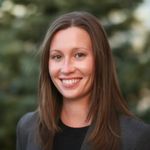 Kelly Aho, Assistant Professor of Biology,
Kelly Aho, Assistant Professor of Biology,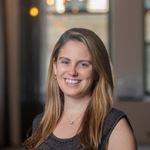 Emily Cunningham, Assistant Professor of Astronomy, studies Milky Way stellar halo. Cunningham is interested in using motions and chemical properties of stars to understand the Milky Way’s formation and evolution. Previously, Cunningham was a Flatiron Research Fellow, at the Center for Computational Astrophysics (CCA) at the Flatiron Institute. At CCA, she is a member of the Dynamics Group and the Astronomical Data Group. She completed my PhD in the Department of Astronomy & Astrophysics at UC Santa Cruz, working with Alis Deason, Raja Guhathakurta and Connie Rockosi.
Emily Cunningham, Assistant Professor of Astronomy, studies Milky Way stellar halo. Cunningham is interested in using motions and chemical properties of stars to understand the Milky Way’s formation and evolution. Previously, Cunningham was a Flatiron Research Fellow, at the Center for Computational Astrophysics (CCA) at the Flatiron Institute. At CCA, she is a member of the Dynamics Group and the Astronomical Data Group. She completed my PhD in the Department of Astronomy & Astrophysics at UC Santa Cruz, working with Alis Deason, Raja Guhathakurta and Connie Rockosi.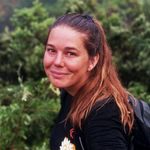 Robin Francis, Lecturer of Biology, is interested in enhancing our understanding of fish population persistence through the framework of marine metapopulation dynamics. Her projects focus on the starting point of these dynamics: variation in mating success and larval dispersal. She uses emerging model systems in marine fish ecology and evolution, the line-snout neon goby, Elacatinus lori, and the orange anemonefish, Amphiprion percula, in a combination of field studies and lab experiments.
Robin Francis, Lecturer of Biology, is interested in enhancing our understanding of fish population persistence through the framework of marine metapopulation dynamics. Her projects focus on the starting point of these dynamics: variation in mating success and larval dispersal. She uses emerging model systems in marine fish ecology and evolution, the line-snout neon goby, Elacatinus lori, and the orange anemonefish, Amphiprion percula, in a combination of field studies and lab experiments.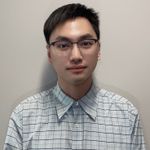
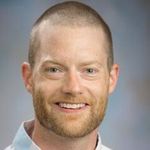
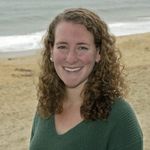 Sasha J. Kramer, Assistant Professor of Earth and Environment, researches the characterizations of surface oceanphytoplankton communities using a combination of in-water samples and remote sensing data on local to regional to global scales. From these surface ocean measurements, she then consider the implications of changing phytoplankton community composition (PCC) for broader biogeochemical cycles (e.g., the biological carbon pump and ocean carbon export) and in response to extreme events like coastal wildfires. Her work is highly interdisciplinary and combines oceanographic fieldwork, ocean color remote sensing, and lab work using optical and molecular tools.
Sasha J. Kramer, Assistant Professor of Earth and Environment, researches the characterizations of surface oceanphytoplankton communities using a combination of in-water samples and remote sensing data on local to regional to global scales. From these surface ocean measurements, she then consider the implications of changing phytoplankton community composition (PCC) for broader biogeochemical cycles (e.g., the biological carbon pump and ocean carbon export) and in response to extreme events like coastal wildfires. Her work is highly interdisciplinary and combines oceanographic fieldwork, ocean color remote sensing, and lab work using optical and molecular tools. Sangil Lee, Assistant Professor of Psychological & Brain Sciences,Lee is interested in developing novel analysis methods for studying decision-making. His recent work has focused on inferring cognitive states from neuroimaging data through machine-learning algorithms. He also collaborates often to link decision-making traits to clinical diagnosis.
Sangil Lee, Assistant Professor of Psychological & Brain Sciences,Lee is interested in developing novel analysis methods for studying decision-making. His recent work has focused on inferring cognitive states from neuroimaging data through machine-learning algorithms. He also collaborates often to link decision-making traits to clinical diagnosis. Laura Long, Research Assistant Professor of Psychological & Brain Sciences, is a Postdoctoral Associate at CARD and is primarily involved in research on resilience and recovery from anxiety and related disorders. She is passionate about integrating protective factors, such as hope and personal strengths, into treatment toenhance well-being and support meaningful, positive change. Her clinical work supports patients in achieving their goals through evidence-based cognitive-behavioral interventions. Laura earned her PhD from the University of Houston and completed her predoctoral internship at the Warren Alpert Medical School of Brown University, where she gained extensive experience working with individuals facing anxiety, depression, and trauma-related disorders.
Laura Long, Research Assistant Professor of Psychological & Brain Sciences, is a Postdoctoral Associate at CARD and is primarily involved in research on resilience and recovery from anxiety and related disorders. She is passionate about integrating protective factors, such as hope and personal strengths, into treatment toenhance well-being and support meaningful, positive change. Her clinical work supports patients in achieving their goals through evidence-based cognitive-behavioral interventions. Laura earned her PhD from the University of Houston and completed her predoctoral internship at the Warren Alpert Medical School of Brown University, where she gained extensive experience working with individuals facing anxiety, depression, and trauma-related disorders.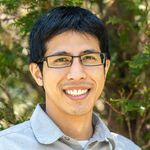 Kirit Karkare, Assistant Professor of Physics, is an experimental cosmologist. He builds telescopes to observe faint radiation in the millimeter-wave region, including the cosmic microwave background anddistant galaxies, to learn about the Big Bang and fundamental physics in the early universe. Related photonics interest lays in utilizing OPF to fabricate sensitive superconducting photon detectors, as his cameras require detector arrays that must be custom-made.
Kirit Karkare, Assistant Professor of Physics, is an experimental cosmologist. He builds telescopes to observe faint radiation in the millimeter-wave region, including the cosmic microwave background anddistant galaxies, to learn about the Big Bang and fundamental physics in the early universe. Related photonics interest lays in utilizing OPF to fabricate sensitive superconducting photon detectors, as his cameras require detector arrays that must be custom-made.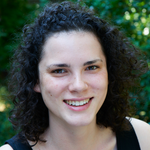 Kate Nussenbaum, Assistant Professor of Psychological & Brain Sciences, researches in the Computation, Learning, and Development Lab focusing on understanding developmental changes invalue-guided learning, memory, and exploration from childhood to early adulthood. By combining novel behavioral tasks with fMRI and computational modeling, she addresses questions about how, across development, people adapt their learning processes to the demands of varied contexts. How do children, adolescents, and adults learn about the structure of the environment and then use that structured knowledge to guide subsequent learning and decision-making? How do ‘learning to learn’ processes shape behavior over multiple timescales of experience?
Kate Nussenbaum, Assistant Professor of Psychological & Brain Sciences, researches in the Computation, Learning, and Development Lab focusing on understanding developmental changes invalue-guided learning, memory, and exploration from childhood to early adulthood. By combining novel behavioral tasks with fMRI and computational modeling, she addresses questions about how, across development, people adapt their learning processes to the demands of varied contexts. How do children, adolescents, and adults learn about the structure of the environment and then use that structured knowledge to guide subsequent learning and decision-making? How do ‘learning to learn’ processes shape behavior over multiple timescales of experience? Yakeel Quiroz-Gaviria, Research Professor of Psychological & Brain Sciences, was an Associate Professor in theDepartments of Psychiatry and Neurology at Harvard Medical School and Massachusetts General Hospital (MGH) in Boston, MA. She is the Director of the MGH Multicultural Alzheimer’s Prevention Program-MAPP, and Immediate Past Chair of the Diversity and Disparities PIA of ISTAART. She earned her master’s degree in cognitive neuroscience and her PhD in clinical neuropsychology from Boston University. Her research interests include brain imaging, genomics, early detection and preclinical biomarkers of Alzheimer’s disease and other dementias.
Yakeel Quiroz-Gaviria, Research Professor of Psychological & Brain Sciences, was an Associate Professor in theDepartments of Psychiatry and Neurology at Harvard Medical School and Massachusetts General Hospital (MGH) in Boston, MA. She is the Director of the MGH Multicultural Alzheimer’s Prevention Program-MAPP, and Immediate Past Chair of the Diversity and Disparities PIA of ISTAART. She earned her master’s degree in cognitive neuroscience and her PhD in clinical neuropsychology from Boston University. Her research interests include brain imaging, genomics, early detection and preclinical biomarkers of Alzheimer’s disease and other dementias.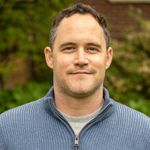 Adrian Thompson, Lecturer of Biology, aims to uncover the molecular and cellular mechanisms that enable neurons and circuits in the developing nervous system to adapt and maintain function in response to changing activity—whether from sensory experience or abnormal conditions such as seizures. While Thompson continues to engage in research collaborations, his primary focus is undergraduate science education. He draws on his background in molecular and cellular neurobiology, along with a strong commitment to evidence-based teaching practices, to design and teach neuroscience courses.
Adrian Thompson, Lecturer of Biology, aims to uncover the molecular and cellular mechanisms that enable neurons and circuits in the developing nervous system to adapt and maintain function in response to changing activity—whether from sensory experience or abnormal conditions such as seizures. While Thompson continues to engage in research collaborations, his primary focus is undergraduate science education. He draws on his background in molecular and cellular neurobiology, along with a strong commitment to evidence-based teaching practices, to design and teach neuroscience courses.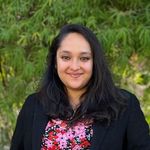 Apekshya Prasai, Assistant Professor of Political Science, researches the relationship between gender, conflict and social transformation, with a regional focus on South Asia, especially Nepal. Her book project examines the gendered ways in which insurgents organize violence and explains why some rebels conform to patriarchal norms while others radically subvert them. Presenting a novel theory of militant female activism, her work highlights the critical but neglected role women play in shaping the gender strategies rebels adopt. Her book and other related projects draw on extensive data collected through ethnographic fieldwork in Nepal and archival research in the Netherlands and across several digital archives. Combining semi-structured interviews, oral histories and rare primary documents in Nepali, Hindi and English, her research sheds lights on the social, especially, gendered processes of civil wars.
Apekshya Prasai, Assistant Professor of Political Science, researches the relationship between gender, conflict and social transformation, with a regional focus on South Asia, especially Nepal. Her book project examines the gendered ways in which insurgents organize violence and explains why some rebels conform to patriarchal norms while others radically subvert them. Presenting a novel theory of militant female activism, her work highlights the critical but neglected role women play in shaping the gender strategies rebels adopt. Her book and other related projects draw on extensive data collected through ethnographic fieldwork in Nepal and archival research in the Netherlands and across several digital archives. Combining semi-structured interviews, oral histories and rare primary documents in Nepali, Hindi and English, her research sheds lights on the social, especially, gendered processes of civil wars.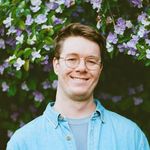 Steven Schmidt, Assistant Professor in Sociology, was an NSF SBE Postdoctoral Fellow at the University of Southern California. Schmidt’s research appears in the American Sociological Review, Social Problems, City & Community, and the Journal of Marriage and Family and has been supported by the National Science Foundation (NSF), the John Randolph and Dora Haynes Foundation, USC’s Lusk Center for Real Estate, and the University of California Institute for Mexico and the United States (UC-MEXUS).
Steven Schmidt, Assistant Professor in Sociology, was an NSF SBE Postdoctoral Fellow at the University of Southern California. Schmidt’s research appears in the American Sociological Review, Social Problems, City & Community, and the Journal of Marriage and Family and has been supported by the National Science Foundation (NSF), the John Randolph and Dora Haynes Foundation, USC’s Lusk Center for Real Estate, and the University of California Institute for Mexico and the United States (UC-MEXUS).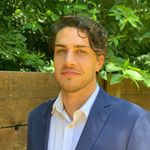 Patrick Sheehan, Assistant Professor of Sociology,
Patrick Sheehan, Assistant Professor of Sociology,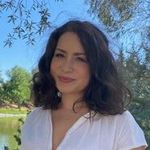 Brianna Tafolla Riviere, Assistant Professor of History,
Brianna Tafolla Riviere, Assistant Professor of History, Chepchirchir Tirop, Assistant Professor of History, is an historian of Africa interested in the social and cultural histories of East Africa. Her previous research focused on the Indian diaspora in Kenya, examining how memory, identity, and nation-building have evolved in post-independence Kenya. Her scholarship has appeared in publications such as Eastern African Literary and Cultural Studies and Africa Is A Country. Her dissertation project examines the political role of athletics in Kenya from 1945 to 2000, arguing that sports were central to decolonization, nation-building, and Cold War diplomacy. She demonstrates how both colonial and postcolonial governments leveraged track and field to advance political agendas—from managing racial hierarchies during decolonization to forging national unity and navigating Cold War politics after independence. Her work reframes African histories by highlighting sport as a site of colonial continuity and postcolonial agency, repositions Kenya as an autonomous Cold War actor, and recovers the often-overlooked role of African athletes in global sports history.
Chepchirchir Tirop, Assistant Professor of History, is an historian of Africa interested in the social and cultural histories of East Africa. Her previous research focused on the Indian diaspora in Kenya, examining how memory, identity, and nation-building have evolved in post-independence Kenya. Her scholarship has appeared in publications such as Eastern African Literary and Cultural Studies and Africa Is A Country. Her dissertation project examines the political role of athletics in Kenya from 1945 to 2000, arguing that sports were central to decolonization, nation-building, and Cold War diplomacy. She demonstrates how both colonial and postcolonial governments leveraged track and field to advance political agendas—from managing racial hierarchies during decolonization to forging national unity and navigating Cold War politics after independence. Her work reframes African histories by highlighting sport as a site of colonial continuity and postcolonial agency, repositions Kenya as an autonomous Cold War actor, and recovers the often-overlooked role of African athletes in global sports history.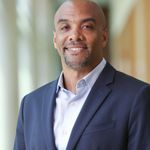 Chad Williams, Professor of History,
Chad Williams, Professor of History, 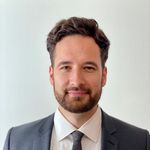 Nicolas Wittstock, Assistant Professor of Political Science, studies the political economy of advanced industrial societies, with a special focus on the political and economic impact of climate change. Other research has explored the political economy of Populism and democratic backsliding. His work has been published in various outlets, including Cambridge University Press, Energy Policy, and the Journal of Political Institutions and Political Economy, among others.
Nicolas Wittstock, Assistant Professor of Political Science, studies the political economy of advanced industrial societies, with a special focus on the political and economic impact of climate change. Other research has explored the political economy of Populism and democratic backsliding. His work has been published in various outlets, including Cambridge University Press, Energy Policy, and the Journal of Political Institutions and Political Economy, among others. Deborah Breen, Master Lecturer in Writing Program, is the Director of the Center for Teaching & Learning. Dr. Deborah Breen prioritizes teaching and learning partnerships at BU. She encourages collaborations with faculty, staff, and students in initiatives that support teaching and learning. Deb has a strong interdisciplinary background with undergraduate qualifications in humanities and applied science (specializing in paper conservation), along with an MA in Public History from Monash University, Australia, and a PhD in History from Duke University.
Deborah Breen, Master Lecturer in Writing Program, is the Director of the Center for Teaching & Learning. Dr. Deborah Breen prioritizes teaching and learning partnerships at BU. She encourages collaborations with faculty, staff, and students in initiatives that support teaching and learning. Deb has a strong interdisciplinary background with undergraduate qualifications in humanities and applied science (specializing in paper conservation), along with an MA in Public History from Monash University, Australia, and a PhD in History from Duke University.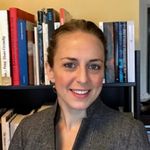 Caitlin Dalton, Lecturer in Writing Program, lives with her partner, a 4-year-old son, and achallenging dog. For fun and some peace amidst the chaos of academia, she tries to go running most days, and ran her first marathon in the Fall 2022. Though some of this is her work, she also loves visiting art museums and arts events in and around the city.
Caitlin Dalton, Lecturer in Writing Program, lives with her partner, a 4-year-old son, and achallenging dog. For fun and some peace amidst the chaos of academia, she tries to go running most days, and ran her first marathon in the Fall 2022. Though some of this is her work, she also loves visiting art museums and arts events in and around the city.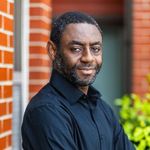 Francis Issah, Lecturer in Writing Program, was born and raised in Tamale, Ghana and considers himself a global citizen. Apart from his native country of Ghana, he has taught English language and literature in Togo and Burkina Faso. Prior to coming to the United States, he was a high school teacher and a university lecturer in Ghana for a combined total of sixteen years. Dr. Issah comes to BU from Wayne State University, where he taught introductory college composition, intermediate writing, technical communication, and rhetorical theory. He is currently working with two other colleagues on an edited collection titled Globalizing Ubuntu in RhetoricalDiscourse and Pedagogy: Theory, Methods, and Practice. This book project will be published by the University of South Carolina Press. Dr. Issah is married to Gifty, and together they have three adorable children: Abigail, Zipporah, and Caleb. He likes to spend a lot of time with his family as well as travel and cook.
Francis Issah, Lecturer in Writing Program, was born and raised in Tamale, Ghana and considers himself a global citizen. Apart from his native country of Ghana, he has taught English language and literature in Togo and Burkina Faso. Prior to coming to the United States, he was a high school teacher and a university lecturer in Ghana for a combined total of sixteen years. Dr. Issah comes to BU from Wayne State University, where he taught introductory college composition, intermediate writing, technical communication, and rhetorical theory. He is currently working with two other colleagues on an edited collection titled Globalizing Ubuntu in RhetoricalDiscourse and Pedagogy: Theory, Methods, and Practice. This book project will be published by the University of South Carolina Press. Dr. Issah is married to Gifty, and together they have three adorable children: Abigail, Zipporah, and Caleb. He likes to spend a lot of time with his family as well as travel and cook.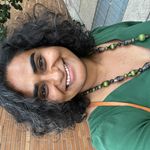 Shweta Krishnan, Lecturer in Writing Program, loves exploring the world through a critical interdisciplinary lens shaped by her experience as a clinical, feminist activist, anthropologist, and science writer. She comes to BU after completing two years at George Washington University as a Visiting Assistant Professor in their Women’s Gender and Sexuality Studies Program. Her courses seekto decolonize science and open up new methods for reimagining our collective futures. She is currently working on a book length project based on her anthropological research as well as some speculative fiction. In her free time, she enjoys good food, art museums, theater, and cinema.
Shweta Krishnan, Lecturer in Writing Program, loves exploring the world through a critical interdisciplinary lens shaped by her experience as a clinical, feminist activist, anthropologist, and science writer. She comes to BU after completing two years at George Washington University as a Visiting Assistant Professor in their Women’s Gender and Sexuality Studies Program. Her courses seekto decolonize science and open up new methods for reimagining our collective futures. She is currently working on a book length project based on her anthropological research as well as some speculative fiction. In her free time, she enjoys good food, art museums, theater, and cinema. Lyana Sun Han Chang, Lecturer in Writing Program, was born in Huacho, Perú and grew up in the suburbs of Chicago where she learned English through ESL classes in school. Lyana has taught first year-writing for multilingual students at the University of New Hampshire and Penn State as well as content courses like Global Englishes and intensive English courses like intermediate writing/reading and listening/speaking at Penn State. In her teaching practices, Lyana incorporates evidence-based pedagogy and her lived experiences as a multilingual immigrant student.
Lyana Sun Han Chang, Lecturer in Writing Program, was born in Huacho, Perú and grew up in the suburbs of Chicago where she learned English through ESL classes in school. Lyana has taught first year-writing for multilingual students at the University of New Hampshire and Penn State as well as content courses like Global Englishes and intensive English courses like intermediate writing/reading and listening/speaking at Penn State. In her teaching practices, Lyana incorporates evidence-based pedagogy and her lived experiences as a multilingual immigrant student.